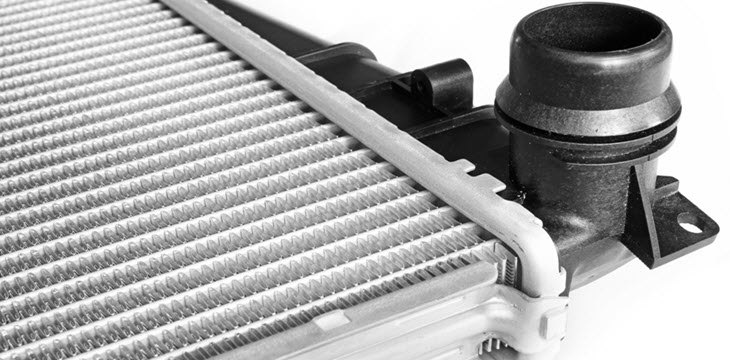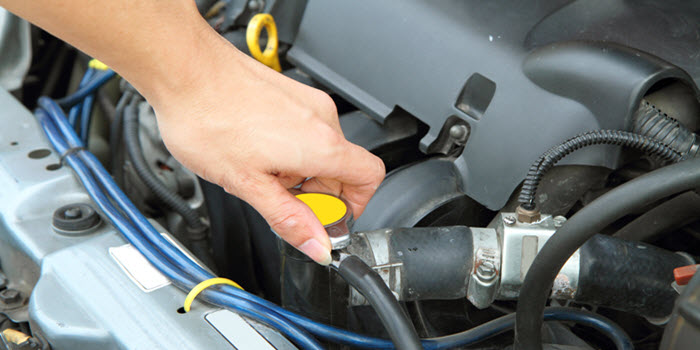One of the lynchpins of your car, the radiator acts as a heat exchanger that transfer the heat from the engine coolant flowing through it to the air blown through it by the fan. This is to keep the engine from overheating, something that can be extremely damaging to your vehicle if it happens too much or at an inopportune time.
The engine creates a large amount of heat and friction when your car is running with pieces constantly running and coming into contact with one another so it is important that your radiator stay well maintained and able to handle regulating the heat, prolonged issues with the radiator can lead to massive vehicular headaches that are expensive to fix. Fortunately, identifying some of the most common radiator issues is relatively easy and oftentimes they can be avoided if you catch them early enough before any serious damages have occurred. If you notice any of these symptoms, it could mean something is wrong with the radiator and you should have your vehicle checked out as soon as possible.
Symptoms of radiator issue
- Failed Thermostat– While not a piece of your actual radiator itself, the thermostat is one of the most common causes for an engine overheating. It acts more as a type of valve that will control the level of coolant that can flow into and out of the radiator, so when it fails, the car will begin to overheat very quickly as it has no regulation over the coolant that it receives. You can always consult your vehicle manual for recommended service intervals for the thermostat and other components or ask your preferred mechanic to take a look during your next maintenance appointment to prevent any failure and have it replaced.
- Leaky Radiator Hoses– The most common cause of a leak within your cooling system is actually from the radiator hoses that link the radiator to the engine and allow the coolant to flow between them. These are a wear component, which means that over time they will begin to wear out and will need to be replaced within the proper intervals. These tend to become more likely to fail over time as well with extended wear so be sure replace them when you begin to notice signs of wear and tear to prevent leaks and potential failure.
- Radiator Leaks– Much harder to locate than a leak in the hoses, a leak in the radiator itself can usually be signaled by bubbles or steam coming from the area that is leaking. These leaks can sometimes be patched but it’s a difficult job to perform. Sticking with regular service intervals and having proper preventative maintenance performed will help prevent these issues from expanding and can help you catch problems early on.
- Build up of Rust– The radiator as a whole is susceptible to rust and though more modern radiators utilize a plastic top, the internal parts are consistently exposed to moisture and can build up rust. Check your coolant levels and the color of the coolant as well. A brownish looking coolant indicates that there is excessive rust throughout the cooling system, meaning you should flush the cooling system as soon as possible. To prevent any build up of rust, use the highest quality coolant or anti-freeze that is available and mix it with distilled water. Flushing the radiator once a year will also help prevent any accumulating rust and also helps to preserve radiator performance and engine overheating.
Your radiator is extremely important to your car and maintaining your engine’s health and performance. If you begin to notice your vehicle overheating frequently or have seen a leak that may be coolant, it’s important to check the status of the radiator hoses and surrounding components.
Final words
If it’s still unclear, have a professional mechanic check out the radiator and inspect it for leaks or other wear and tear. Build-ups of rust or sludge can also indicate that the radiator is in need of more intense service or flushing, so be sure to follow proper maintenance procedures for your vehicle annually to prevent these build-ups from occurring. This will keep your radiator functioning properly and at a high level, keeping your vehicle running smoother for as long as possible.









